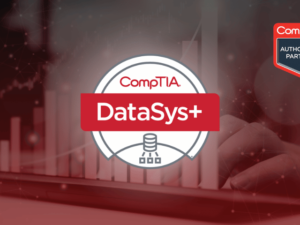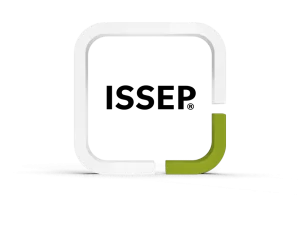CERTIFIED SOFTWARE ASSET MANAGER (CSAM)
- Description
- Reviews

CERTIFIED SOFTWARE ASSET MANAGER (CSAM)
COURSE DESCRIPTION
The Certified Software Asset Manager (“CSAM”) course introduces the key concepts and processes of Software Asset Management. Software Asset Management is important for any organization, because proper software asset management establishes compliance and reduces costs. Many organizations are inadvertently incompliant, which is a significant risk. Additionally, many organizations are paying for software licenses they don’t need. Establishing proper software asset management practices gives organizations control over their licenses. This program discusses fundamental concepts and best practices in software asset management. The course provides an overview of different software licenses. Thereafter, the program focuses on software compliance requirements. Participants learn how to prepare for a software audit, and which preparations the organization can take. Moreover, you will learn best practices and lessons learned from other organizations. By combining process design and case studies, participants prepare for the role of software asset manager. Software asset managers help to advise procurement teams on the acquisition of new software licenses. In addition, they optimize the annual spend on existing licenses. By making the right decisions and optimizing license allocations, software asset managers can save significant money in any organization.
Upon completing the course, participants possess the knowledge to proactively manage software licenses. As a result, they can fulfill the role of software asset manager in any organization. Participants who completed the course take the Certified Software Asset Manager exam. After passing the exam, participants receive the CSAM designation. This designation holds widespread recognition and value in the industry, demonstrating their overall expertise and dedication to excellence in software asset management.
WHY YOU SHOULD JOIN
You should join this program, because this program provides you:
• Industry Expertise: Learn from industry experts with extensive experience in software asset management.
• Global Recognition: IATAM’s certification is respected worldwide and can open doors to new career opportunities.
• Practical Skills: Acquire practical skills that can be immediately applied in your job role.
• Networking: Connect with a community of software asset management professionals.
• Career Advancement: Enhance your career prospects and earning potential in a high-demand field.
TARGET AUDIENCE
The CSAM Course is designed for business professionals with minimal or entry-level experience in the field of Software Asset Management. It is essential information for beginning IT Asset Managers and other IT professionals involved in asset management, resource budgeting, finance, software licensing, contract management, and strategic planning.
WHAT YOU WILL LEARN
The Certified Software Asset Manager program covers the following topics:
• Software License Types: Differentiate between various software license types, including volume, subscription, and open-source licenses.
• Compliance Strategies: Develop strategies to ensure compliance with software licenses and minimize legal and financial risks.
• Vendor Management: Establish effective vendor relationships, negotiate software contracts, and navigate vendor audits professionally.
• Software Discovery: Utilize methods and tools for accurate software discovery and inventory management.
• Usage Optimization: Analyze software usage data and implement strategies to optimize usage and reduce waste.
• Lifecycle Management: Manage software assets throughout their lifecycle, including version control, updates, and retirement.
• Audit Preparedness: Prepare for software compliance audits proactively and respond to audit requests effectively.
• Risk Mitigation: Identify and mitigate software-related risks, including security risks, in SAM practices.
• Cost Optimization: Apply cost optimization strategies, eliminate unused licenses, and develop budgeting skills.
• Documentation and Reporting: Create effective SAM reports, follow best practices for documentation, and maintain compliance records
Upon completing the CSAM course, participants should also have a solid foundation in software asset management principles and practices, making them well-equipped to manage software assets effectively, ensure compliance, reduce costs, and minimize risks within their organizations.
EXAM STRUCTURE
The online exam is available for students starting on the last day of class; and is available from 14 days from this point. One
hundred (100) questions are on the IAITAM CSAM exam and a passing mark is achieved by attaining 85% or higher.
Testing requires non-interrupted internet connection and may be taken at any time during the open period; once a test is
started, students are required to complete it during that session and are permitted up to 3 hours to complete. However, it is suggested to take the exam as soon as possible following the course.
COURSE OUTLINE
DAY 1
• Introduction to IAITAM
• Instructor Introduction
• Student Introductions
• ITAM Code of Ethics
• Description of CSAM
• Overview of the ITAM Program
• ITAM As A Program
• 12 IAITAM KPAs
• Program Management
• Acquisition Management
• Asset Identification Management
• Communication and Education Management
• Compliance Management
• Disposal Management
• Documentation Management
• Financial Management
• Legislation Management
• Policy Management
• Project Management
• Vendor Management
DAY 2
• The Scope of Software Licensing
• Audits
• Proactive Vs. Reactive SAM
• Saving Benefits of SAM
• ITAM Compliance
• Audit Response
• Enforcement Entities
• Due Diligence for Compliance
• The Art of Negotiation
• ITAM Automation
• Metering/Usage Tool Functions
• Hardware and Organizational Impacts
• Hardware Focal Points for SAM
For FULL COURSE OUTLINE, please contact us. Please contact us for the schedules and for booking a private class.
Popular Courses
Archive
Working hours
| Monday | 9:00 am - 6.00 pm |
| Tuesday | 9:00 am - 6.00 pm |
| Wednesday | 9:00 am - 6.00 pm |
| Thursday | 9:00 am - 6.00 pm |
| Friday | 9:00 am - 6.00 pm |
| Saturday | Closed |
| Sunday | Closed |












